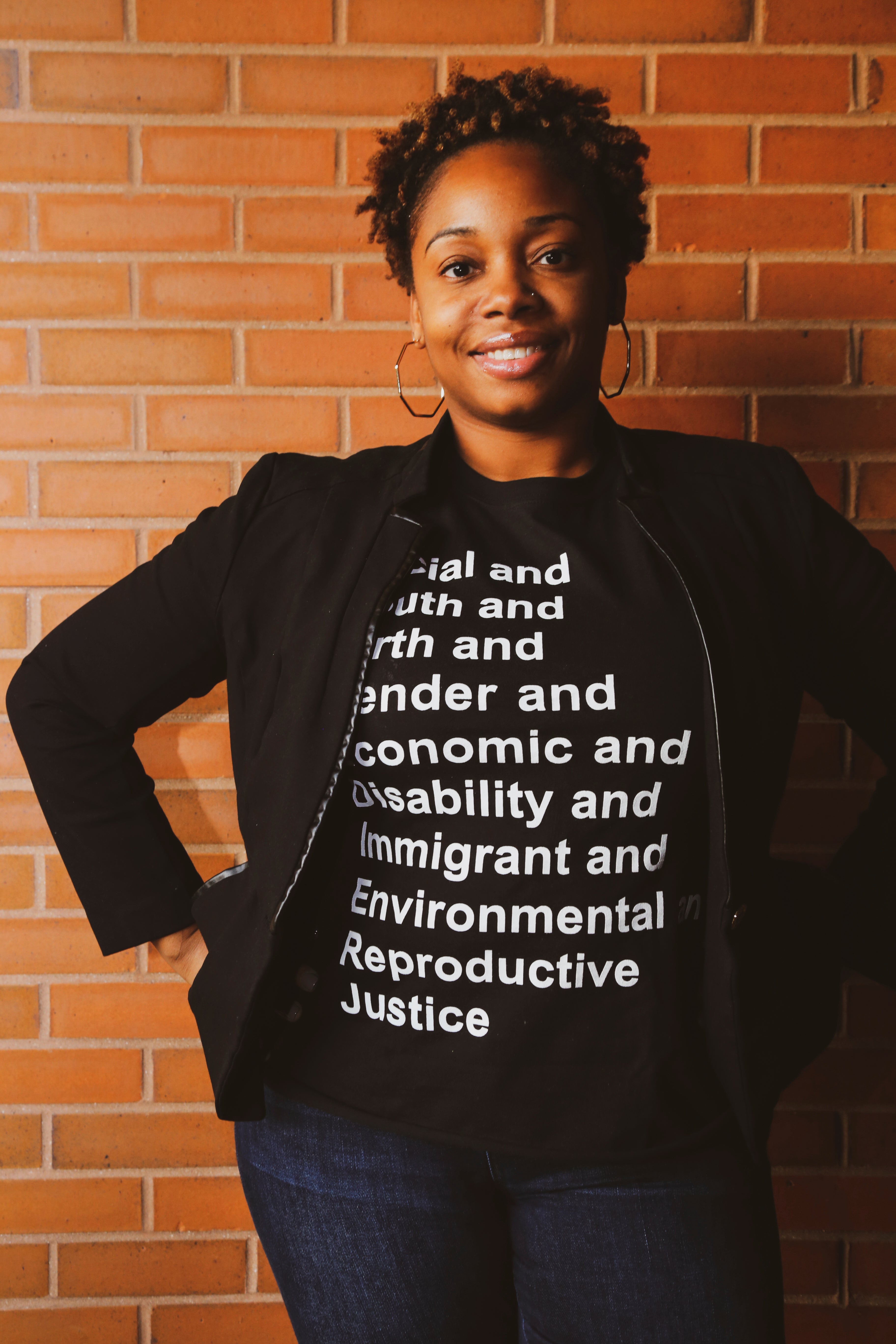New Ms. Foundation initiative funds birth justice nonprofits
Ms. Foundation for Women’s new Birth Justice Initiative, designed to support grassroots organizations led by Black, Indigenous and other women of color as they advance more equitable birth outcomes in the country, is already making a difference for nonprofits serving pregnant women

When Jeanine Valrie Logan moved to Chicago 12 years ago, she wondered why so many of her pregnant neighbors couldn’t get prenatal care or deliver their babies nearby as her neighbors did when she lived in Washington D.C.
“It was such an amazing place,” she said of the Washington nonprofit Community of Hope. “Black women specifically were coming to get these out-of-hospital services from Black providers.”
Logan, a doula and certified midwife, held onto the dream of offering a similar place on Chicago’s South Side. In the racial reckoning that followed the police killing of George Floyd in Minneapolis, she said, her project began to gain momentum. Recently, Logan received a $50,000 grant from the Ms. Foundation for Women’s new Birth Justice Initiative, designed to support grassroots organizations led by Black, Indigenous and other women of color as they advance more equitable birth outcomes in the country.
Part of that grant money helped buy the building where Logan plans to open the Chicago South Side Birth Center by the end of 2023.
Sona Smith, Ms. Foundation’s Birth Justice program officer, said the foundation launched the initiative this year, donating $1 million this year to grassroots organizations like Logan's that “build power within the birth justice movement and address race-based health disparities, birth experiences and birth outcomes.”
The growing interest in birth justice comes as interest in the broader issue of reproductive justice is running high after the Supreme Court overturned its Roe vs. Wade decision last summer, allowing states to determine whether abortion is legal for its residents. Experts say birth justice will become more important as concern intensifies over the health of pregnant women, who opt to have children in states banning abortion.
At the Clinton Global Initiative, the gathering of international political, business and philanthropic leaders that convened in New York last month for the first time since 2016, former Secretary of State Hillary Rodham Clinton noted that the United States is one of very few countries whose maternal mortality rates have risen in the past 20 years.
“That statistic is so shameful,” she said. “Nationwide, there are dramatic disparities in maternal health outcomes — with the worst outcomes among Black women, underemployed and underinsured people.”
The Ms. Foundation said it was time to focus on changing that, starting at the community level.
“We have decades of experience with supporting grassroots leaders who are fighting for reproductive justice,” Smith said, referring to the launch of the new birth justice initiative this year. “Because our mission is sensitive to building the power of women and girls of color, and we see the data that shows how women and girls of color are so impacted by birth injustice, it just makes sense… We show up for women and girls of color in this country.”
With its first round of funding, the Ms. Foundation sought to fund grassroots, frontline organizations with annual operating budgets under $1.5 million. The demand for grants was so high that the nonprofit plans to offer another round.
“We really wanted to get at those organizations that are oftentimes overlooked by funders, either because they have smaller capacity or they have smaller budgets,” Smith said. “So many organizations have never received foundation funding before. Many of the organizations that have been doing this work have been doing this for a long time, just without foundation dollars. It’s been a labor of love. Or it has been self-funded.”
Danielle Reid said the grant from the Ms. Foundation has given her nonprofit Birthing Cultural Rigor the confidence to seek further grants to expand. The group fights obstetric racism and helps hospitals and caregivers focus on getting Black women and girls proper treatment through their pregnancies.
It was founded by the noted physician and scientist Dr. Karen A. Scott, who is known for her research showing that Black mothers are 400% more likely to die in a hospital than white mothers during pregnancy and birth.
Reid said their “Black-woman-led organization doing work for Black women” was being rejected for grants so often that they wondered if they were doing something wrong.
“We weren’t getting any feedback for grants,” she said. “Then we see people who aren’t scientists, who aren’t doctors, who don’t have the data and the information that we have, and they’re getting millions.”
Birthing Cultural Rigor hopes to use the grant money to further its initiatives to train hospitals and caregivers to change their processes and learn to listen to Black women more closely, without being judgmental, Reid said.
“We want to ensure that Black women and Black birthing people are heard and understood and given the same care that other races get,” Reid said.
_____
Associated Press coverage of philanthropy and nonprofits receives support through the AP’s collaboration with The Conversation US, with funding from Lilly Endowment Inc. The AP is solely responsible for this content. For all of AP’s philanthropy coverage, visit https://apnews.com/hub/philanthropy.
Bookmark popover
Removed from bookmarks